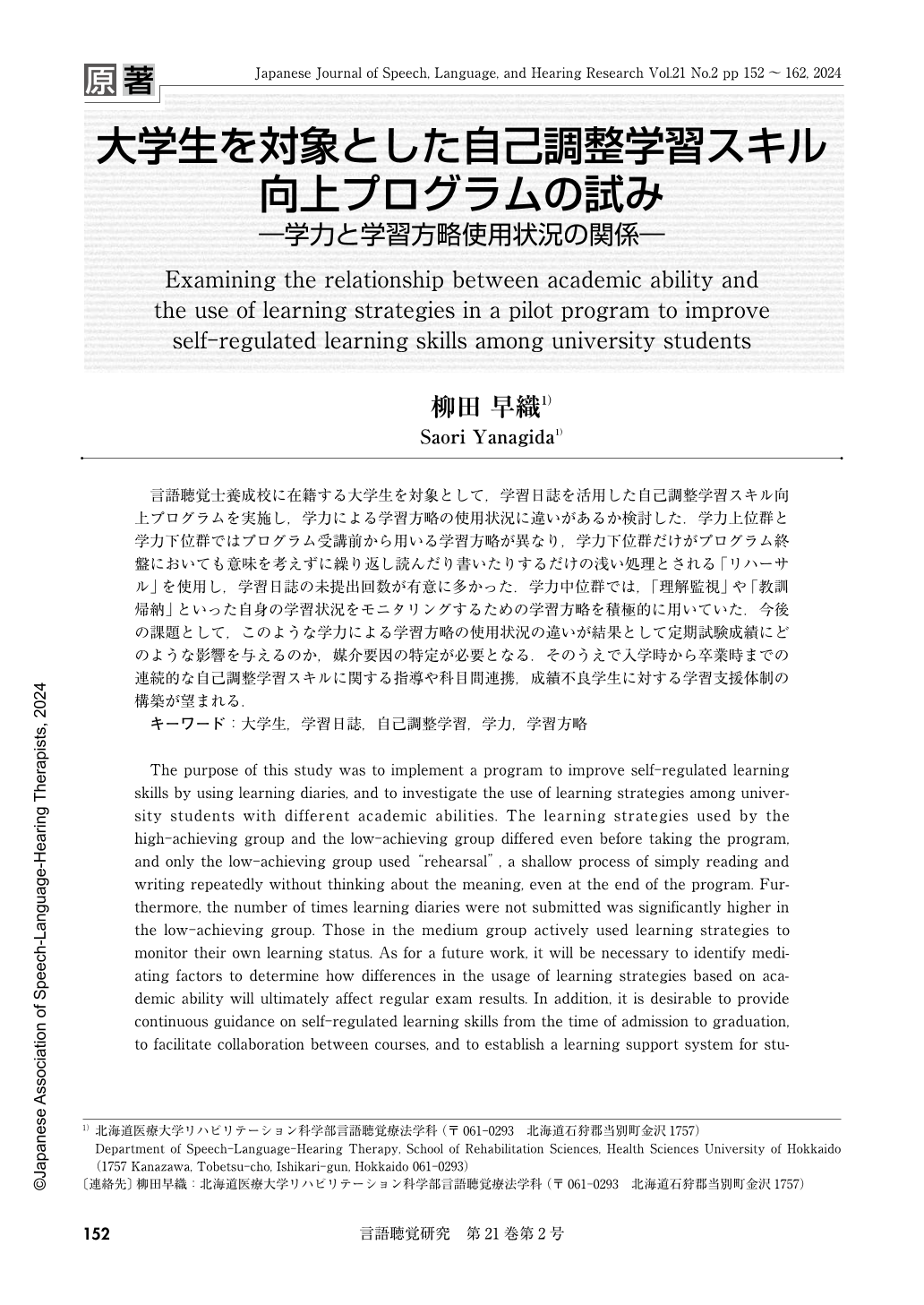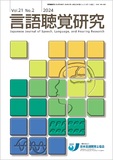Japanese
English
- 有料閲覧
- Abstract 文献概要
- 1ページ目 Look Inside
- 参考文献 Reference
言語聴覚士養成校に在籍する大学生を対象として,学習日誌を活用した自己調整学習スキル向上プログラムを実施し,学力による学習方略の使用状況に違いがあるか検討した.学力上位群と学力下位群ではプログラム受講前から用いる学習方略が異なり,学力下位群だけがプログラム終盤においても意味を考えずに繰り返し読んだり書いたりするだけの浅い処理とされる「リハーサル」を使用し,学習日誌の未提出回数が有意に多かった.学力中位群では,「理解監視」や「教訓帰納」といった自身の学習状況をモニタリングするための学習方略を積極的に用いていた.今後の課題として,このような学力による学習方略の使用状況の違いが結果として定期試験成績にどのような影響を与えるのか,媒介要因の特定が必要となる.そのうえで入学時から卒業時までの連続的な自己調整学習スキルに関する指導や科目間連携,成績不良学生に対する学習支援体制の構築が望まれる.
The purpose of this study was to implement a program to improve self-regulated learning skills by using learning diaries, and to investigate the use of learning strategies among university students with different academic abilities. The learning strategies used by the high-achieving group and the low-achieving group differed even before taking the program, and only the low-achieving group used “rehearsal”, a shallow process of simply reading and writing repeatedly without thinking about the meaning, even at the end of the program. Furthermore, the number of times learning diaries were not submitted was significantly higher in the low-achieving group. Those in the medium group actively used learning strategies to monitor their own learning status. As for a future work, it will be necessary to identify mediating factors to determine how differences in the usage of learning strategies based on academic ability will ultimately affect regular exam results. In addition, it is desirable to provide continuous guidance on self-regulated learning skills from the time of admission to graduation, to facilitate collaboration between courses, and to establish a learning support system for students with poor grades.

Copyright © 2024, Japanese Association of Speech-Language-Hearing Therapists. All rights reserved.


